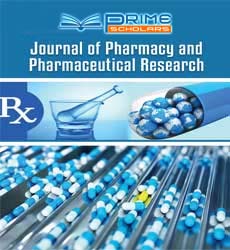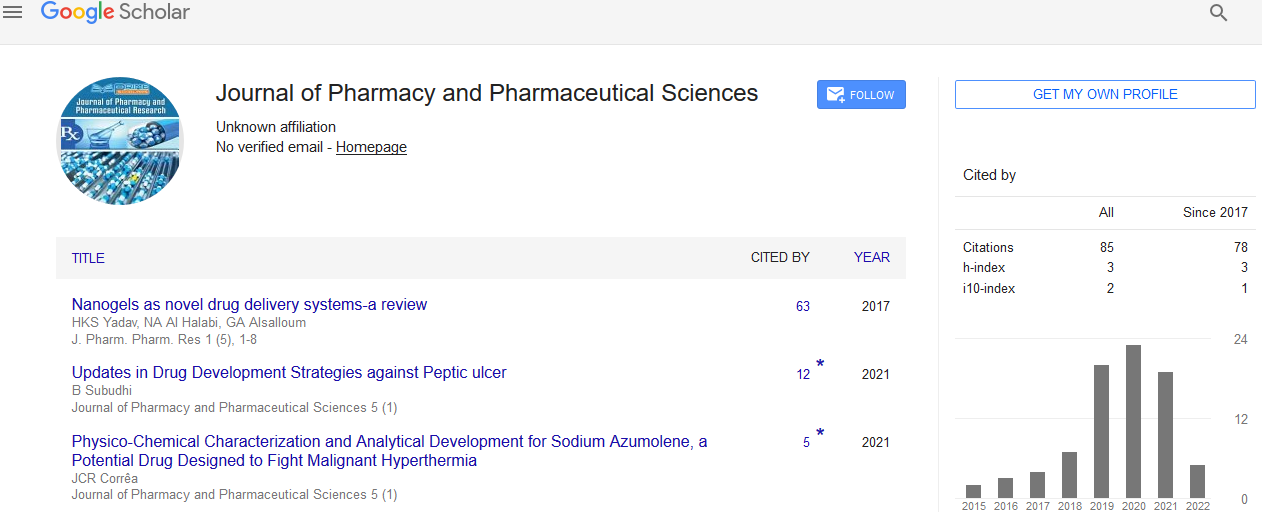Perspective - (2022) Volume 6, Issue 6
Drug therapy for Prevention of Perinatal Cardiovascular Complications
Rosie Maria*
Department of Pharmacy, University of Perth, Australia
*Correspondence:
Rosie Maria,
Department of Pharmacy, University of Perth,
Australia,
Email:
Received: 30-Nov-2022, Manuscript No. IPIPR-23-15430;
Editor assigned: 02-Dec-2022, Pre QC No. IPIPR-23-15430 (PQ);
Reviewed: 16-Dec-2022, QC No. IPIPR-23-15430;
Revised: 21-Dec-2022, Manuscript No. IPIPR-23-15430 (R);
Published:
28-Dec-2022, DOI: 10.21767/IPIPR.22.6.26
INTRODUCTION
Treatment and prevention of the perinatal cardiovascular complications
often require drug therapy. During pregnancy, the mother’s
body undergoes many physiological changes. Hemodynamic
changes mainly include increased circulating plasma volume, increased
heart rate, decreased vascular resistance, hypercoagulability,
and increased vascular wall fragility. Pregnancies with cardiovascular
complications therefore have an increased incidence
of heart failure, arrhythmias, thromboembolism, and aortic dissection.
A registry study reported that 1/3rd of pregnant women
with heart disease had taken heart medication during pregnancy,
which was associated with an increased incidence of fetal adverse
events. Although human experience-based assessments are more
appropriate, epidemiological studies in pregnant and lactating
mothers are limited, and it is difficult to include the results of such
studies in the package.
Description
Once pregnancy is established, circulating plasma volume and
cardiac output increase gradually, reaching peak values from 28
weeks gestation to her 32 weeks. Pregnancy weeks are approximately
1.5 times the non-pregnancy values. The pregnant and lactating
women section of the drug label is based on drug overdose
studies in reproductive animals, but the applicability of animal
studies to humans is limited. During labor, each contraction of the
uterus transfers 200 ml-400 ml of uteroplacental blood into the
systemic circulation, continuing to increase cardiac output. Immediately
after childbirth, the uterus enlarges and the inferior vena
cava is released, and the uterine contraction causes the blood that
was circulating in the uterine artery to return to the heart, resulting
in a rapid increase in venous return. It takes about 3-6 weeks
or more for the volume to load normally. In response to this increased
volumetric load, patients with stenotic lesions, pulmonary hypertension, and cardiac dysfunction may develop heart failure
and relatively low cardiac output. Studies of perinatal heart failure
have shown that in many cases of organic heart disease, heart failure
develops between 20 and 30 weeks of age. Diuretics containing
catecholamines, carperitide, and cardiotonics can be used to
treat acute heart failure during pregnancy. The use of diuretics in
chronic heart failure raises concerns about decreased uterine circulation
due to excessive diuresis, oligohydramnios, dehydration
due to fetal diuresis, and electrolyte imbalance. Angiotensin-Converting
Enzyme (ACE) inhibitors and angiotensin receptor blockers
(ARBs) are contraindicated because they cause fetal renal hypoplasia
and oligohydramnios.
Conclusion
If maternal vital signs are stable and heart failure is caused by
pregnancy-related fluid overload, prenatal volume depletion with
diuretics or other drugs can prevent further deterioration of heart
failure. Both coagulation and fibrinolysis increase during pregnancy.
Mothers who are in shock with vital signs may need to give birth
soon. However, systemic circulation and cardiac output continue
to increase at birth. Increased risk of complications in pregnancies
at high risk of thromboembolism, caution should be exercised in
the use of anticoagulants and antiplatelet drugs, and adequate education
and informed consent should be obtained because these
drugs can affect the mother and child.
Acknowledgement
The author is grateful to the journal editor and the anonymous
reviewers for their helpful comments and suggestions.
Conflict of Interest
The author declared no potential conflicts of interest for the research,
authorship, and/or publication of this article.
Citation: Maria R (2022) Drug Therapy for Prevention of Perinatal Cardiovascular Complications. J Pharm Pharm Res. 6:26.
Copyright: © 2022 Maria R. This is an open-access article distributed under the terms of the Creative Commons Attribution License, which permits unrestricted use, distribution, and reproduction in any medium, provided the original author and source are credited.

